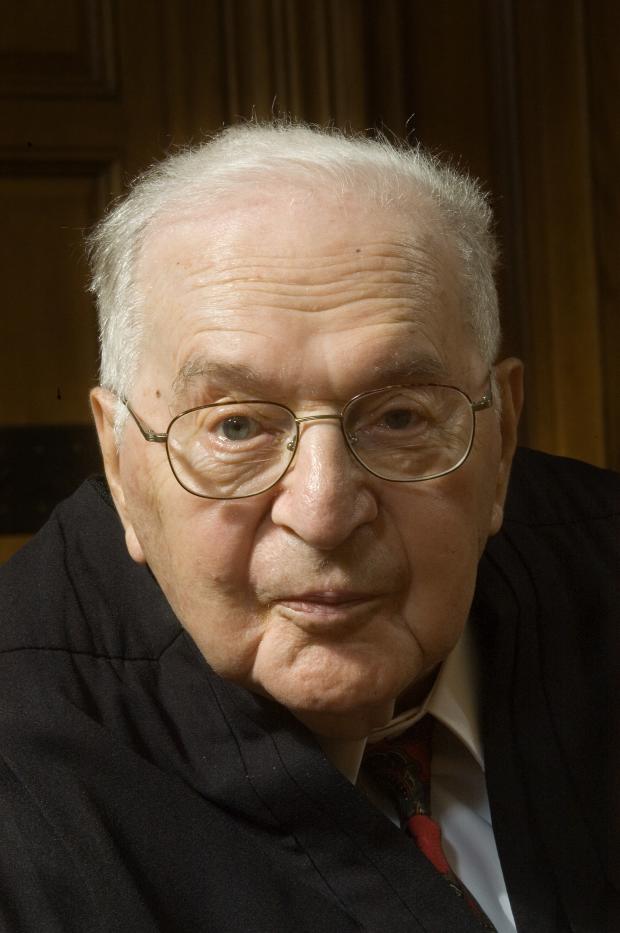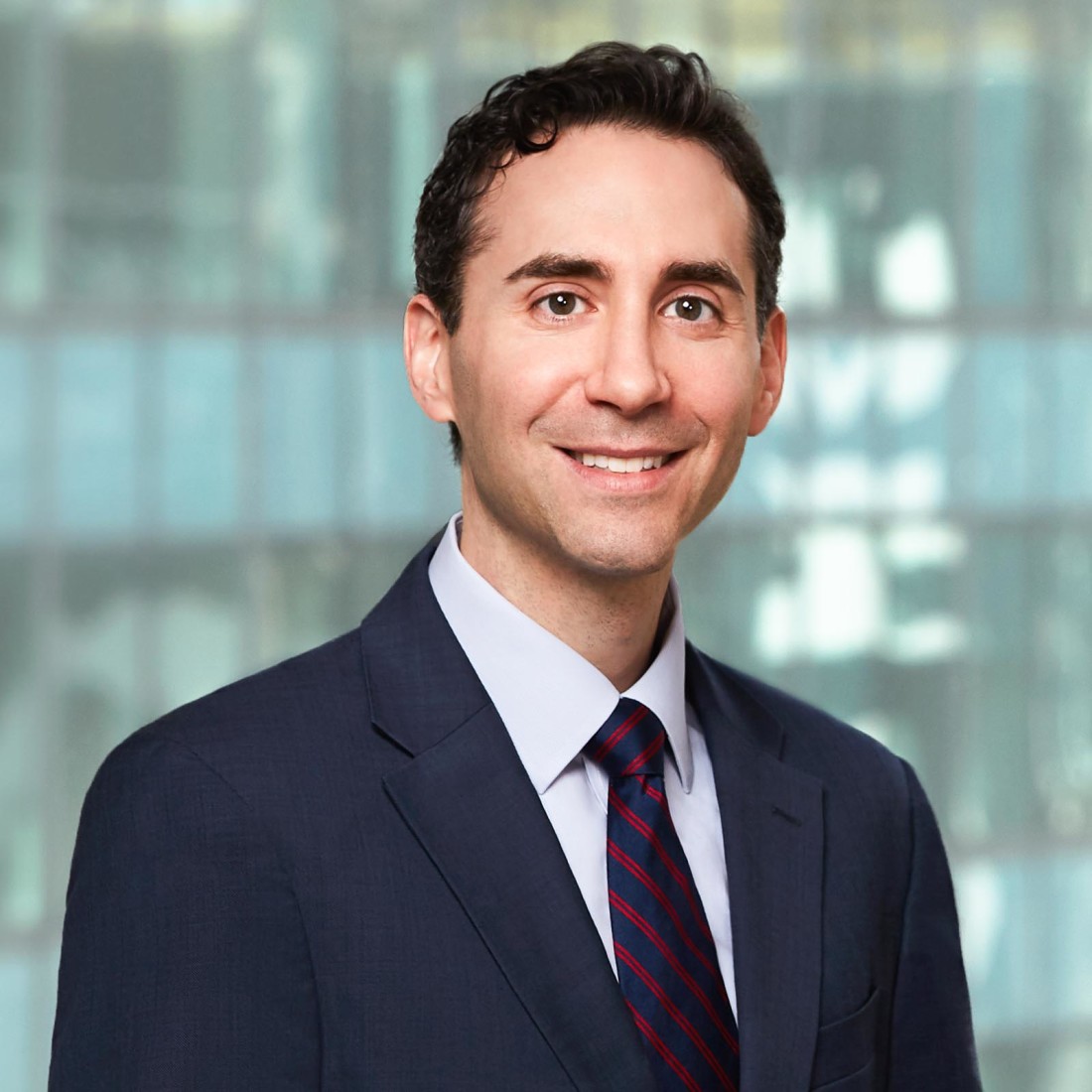Celebrating Jewish-American Heritage Month: Justice Benjamin Kaplan: A Jewish-American Pioneer in Intellectual Property Law
 Photo by George Peet, provided with permission from the Massachusetts Appeals Court
Photo by George Peet, provided with permission from the Massachusetts Appeals Court
In honor of Jewish-American Heritage Month, we highlight the life of Benjamin Kaplan (1911–2010), a distinguished Jewish-American jurist and legal scholar whose contributions to intellectual property law have had a lasting impact on American jurisprudence. Over the course of his long career, Kaplan helped shape the development of copyright law, influenced generations of legal thinkers, and played a critical role in the judiciary.
Early Life and Education
Born in the Bronx in 1911, Benjamin Kaplan graduated high school at the age of fourteen and attended the City College of New York before earning his law degree from Columbia Law School in 1933. Kaplan excelled academically, becoming an editor of the Columbia Law Review and graduating at the top of his class. Following law school, Judge Kaplan entered private practice at a New York law firm that handled major literary and political cases of its day. Among other matters, Kaplan worked on the litigation that convinced the federal courts that James Joyce’s Ulysses was not obscene and could be admitted into the United States.[i] Several years later, he worked on the landmark First Amendment case of Hague v. Comm. on Indus. Orgs., 307 U.S. 496 (1939), which voided a municipal ordinance that had allowed for arbitrary denial of permits to assemble in public places.
World War II and the Nuremberg Trials
In 1945, then-Lieutenant Colonel Benjamin Kaplan was a procurement officer at the Pentagon. Following the conclusion of World War II, US Supreme Court Justice Robert H. Jackson was appointed as the chief US prosecutor at the Nuremberg trials against Nazi officials. Justice Jackson soon added Benjamin Kaplan to his staff. Kaplan became a principal architect of the Nuremberg indictment, which charged Nazi officials and government organizations with executing a common plan or conspiracy to commit crimes against peace, war crimes, and crimes against humanity.[ii] Over the course of the Nuremberg Trials, 200 defendants were tried, 161 were convicted, and 37 were sentenced to death.[iii]
Academic Career and Influence on Intellectual Property Law
Following the Nuremberg Trials, Kaplan joined the faculty of Harvard Law School in 1947, where he became one of the foremost legal scholars in the United States. Kaplan made major contributions to intellectual property law, particularly in the field of copyright. His influential book, An Unhurried View of Copyright (1967), provided thoughtful and detailed analyses of American copyright law. In this work, Kaplan examined the balance between protecting creators’ rights and ensuring public access to knowledge and culture, a theme that remains central to modern copyright debates.
Kaplan was a key figure in shaping how courts and scholars understood intellectual property in the context of technological changes. At a time when mass media and emerging technologies were challenging traditional ideas of copyright and authorship, he advocated for legal principles that would adapt to new realities while maintaining fundamental protections for creativity and innovation. Judge Kaplan’s book was ahead of its time, as it “envisioned the free speech implications of intellectual property law ‘at the eventual heart of things to come,’ when ‘linked or integrated systems or networks of computers [are] capable of storing faithful simulacra of the entire treasure of the accumulated knowledge and artistic production of past ages, and of taking into the store new intelligence of all sorts as produced.’"[iv]
Judicial Career and Legacy
In 1972, Kaplan left Harvard to become an Associate Justice of the Massachusetts Supreme Judicial Court, where he served for 18 years. “Over the years, he became known as a master of opinions, defining the law with a unique clarity.”[v] Even after retiring from the Massachusetts Supreme Judicial Court in 1989, Justice Kaplan continued to serve as a judge on the state’s Appeals Court well into his 90s.
Kaplan’s impact on legal education was profound. He trained generations of students who went on to become influential judges, attorneys, and academics, including US Supreme Court Justices Ruth Bader Ginsburg and Stephen Breyer.
Though Justice Kaplan was a renowned legal scholar, he was also known for his modesty regarding his notable intellectual talents, as well as his humor. In a tribute to the late Justice Kaplan, a former colleague and student shared the story of “a student who, when called on [by Professor Kaplan], answered ‘unprepared.’ Pressed, [the student] continued, ‘I know nothing about the matter.’ Ben [Kaplan] replied, ‘Neither do I, now we can both speak freely.’”[vi]
Conclusion
Justice Benjamin Kaplan’s legacy in intellectual property law remains significant. His scholarship laid the foundation for modern copyright analysis, and his judicial opinions reflected a deep commitment to justice and legal reasoning. As both an academic and a judge, Kaplan helped shape the way intellectual property law is understood and applied in the United States. His contributions continue to influence legal debates in an era of rapid technological change, proving that his work remains as relevant today as it was during his lifetime.
In memory of Judge Kaplan, CLL has made a CLL4GOOD donation to the US Holocaust Memorial Museum.
[i] United States v. One Book Called “Ulysses,” 5 F. Supp. 182 (S.D.N.Y. 1933), aff’d, 72 F.2d
705 (2d Cir. 1934).
[ii] Benjamin Kaplan, Associate Justice memorial, 460 Mass. 1303 (2011) available at https://www.mass.gov/person/benjamin-kaplan
[iii] “The Nuremberg Trials,” nationalww2museum.org, https://www.nationalww2museum.org/war/topics/nuremberg-trials (last visited April 3, 2025)
[iv] 460 Mass. 1303 (Mass. Attorney General Martha Coakley citing An Unhurried View of Copyright (1967)).
[v] Lawyers Journal, Massachusetts Bar Association, Massbar.Org (June 2005), https://massbar.org/publications/lawyers-journal/lawyers-journal-article/lawyers-journal-2005-june/retired-mass-supreme-court-justice-wins-ajs-harley-award- (last visited April 3, 2025)
[vi] IN MEMORIAM: BENJAMIN KAPLAN, 124 Harv. L. Rev. 1347, 1347 (2011).

Counsel
Email | 212.790.9248
Raphael Nemes’s practice encompasses a wide range of intellectual property matters, including trademark litigation, enforcement, prosecution, and contested proceedings before the Trademark Trial & Appeal Board.